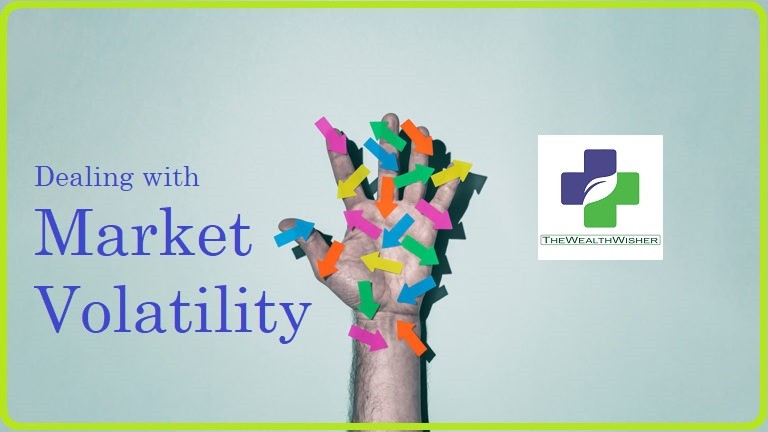I recently had an interaction with a renowned fund manager and he started with the phrase – “We live a VUCA World”. VUCA stands for Volatile, Uncertain, Complex, & Ambiguous. Market Volatility is now a researched & accepted discussion.
Simply projections & forecasting are not working. The only thing working in investments is discipline.
Reason – Market Volatility increasing due to Uncertainty is on rise.
What is Market Volatility?
Volatility is a measure of fluctuation in the price of a stock, market index or value of any asset. If the price of a share rises to a high of Rs 27, falls to a low of Rs 17 within a day and finally closes at Rs 20, its volatility for the day is 50%.
Generally, it is taken to be proxy for risk: the higher the volatility, the riskier the investment in that asset. But higher risk caused by high volatility does not always mean lower return.
On the contrary high volatility can coexist with high returns and the reverse can also be true.
What causes Market Volatility?
Globalization
On 27 January 2020 stock prices went into freefall following the fall in the Chinese stock markets due to Coronavirus. Strange? Well epidemics are market enemies in history too.

The effects of globalization is like a new chapter every day. Some we know (oil, currency, Trump, trade war) some new & unknown (diseases – How many new viruses will attack in the coming decade, who shot civilian airplanes over war zones or when IL&FS management turns corrupt)
Interest rate
A fall or rise in interest rates affects returns from debt investments, which become more or less attractive. This can have a domino effect on stock investments too. If the debt is less attractive, more money will go into equity or vice versa.
Events
There are predictable events like the Union budget or a company AGM that could trigger” market volatility. Yes Bank, Vodafone Idea are few recent examples.
Then there are unexpected political events (Example Davos or Impeachment of US President) or just a statement by a global leader that could set off a market frenzy overnight.
Checking Volatility
Volatility can’t be prevented but it can be moderated to some extent.
It is also important to understand the decrease in the market. It can be a correction, a fall or a crash.
In fact, John Maynard Keynes himself once said that markets can remain irrational longer than you can remain solvent.

Stock exchanges have circuit breakers for certain types of shares which means that trading is suspended in the stock for a specified period if it falls by a pre-defined percentage. The percentage varies across different categories of stocks and is also extended to the market indices.
Fall: No copybook definition, but a drop in the indices (Sensex and Nifty) over the previous day’s closing value can be termed a fall especially if it recovers lost ground the next day.

Crash: There is no fixed definition. A crash is a huge and sustained fall. The 565 point (11%) fall in the Sensex two days after the UPA government took over in Delhi in May 2004 was a crash that suspended trading. It’s better to look at percentage rather than absolute fall-to distinguish a fall from a crash.
Correction: A short, measured fall in prices, especially one that shaves off some gains from a continued rally is a correction. It is considered good I because during a correction, the ownership of shares from weak hands (short-term investors) to strong hands (long-term investors).

Are corrections, crash & fall bad?
Of course, they are.
They are born due to inefficiency – small or big. Small bubble or big bubble.
But they do not make
Markets – Stocks – MFs – Advisors & Investors
BAD…?
The first positive of MARKET VOLATILITY is – It works both ways. In investments, the movement is on both – Positive & Negative side.
You get positive surprises too.

In investments, you can make friends with volatility by:
Using SIPs – While accumulation.
STPS while making a purchase.
Diversifying at all times.

True investors welcome market volatility
- Volatility gives investors the opportunity to buy and sell great businesses at attractive prices.
- View investing as the opportunity to acquire stakes in excellent companies : then volatility is your best friend.
- If volatility results in a stock decline and your methodology is sound, then you either buy more or sit tight while the gap between market price and intrinsic value narrows.
Greater market volatility leads to more potential opportunities for the enterprising investor.









